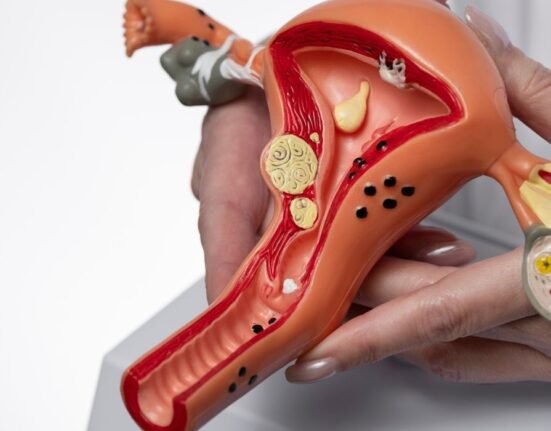Dementia is a syndrome produced by a variety of diseases that gradually destroy nerve cells and harm the brain, often resulting in loss in cognitive function (i.e. the ability to process ideas) that exceeds what would be expected from the normal effects of biological aging. While awareness is unaffected, cognitive function impairment is frequently accompanied, and sometimes preceded by, changes in mood, emotional control, behavior, or motivation.
Dementia has physical, psychological, social, and economic consequences, not just for dementia patients, but also for their caregivers, families, and society as a whole. Misunderstanding and stigma often, surround dementia, hindering its diagnosis and care.
Revolutionizing Dementia Diagnosis
Thousands of people in the UK who have worries about their memory will have their blood tested for dementia in two trials, which doctors hope will help to reverse the low diagnosis rate. Teams from the University of Oxford and University College London will conduct the trials to investigate the use of inexpensive and simple tests to detect proteins in patients with early stages of dementia or cognitive impairments, with the goal of speeding up diagnosis and reaching more people. Currently, obtaining an official diagnosis in the UK requires mental aptitude tests, brain scans, or invasive and painful lumbar punctures, which involve drawing a sample of cerebrospinal fluid from the lower back.
Approximately 1 million people in the United Kingdom suffer from the illness, a number expected to increase to approximately 1.7 million by 2040, with potentially dire implications. In 2022, dementia claimed the lives of 66,000 individuals in England and Wales, making it the biggest cause of death in the country, with Alzheimer’s accounting for two-thirds of cases. According to the charity, patients and their families have been waiting up to four years for an appointment and findings. In England, more than one-third of those living with dementia have yet to get a formal diagnosis. The tests are highly effective in research settings. If they prove to be useful in practice, they could make Alzheimer’s diagnosis easier.
Accelerating Alzheimer’s Diagnosis
They could provide findings for patients considerably faster and hasten the release of new Alzheimer’s medicines that rely on early detection. The trial will help determine if they can frequently implement these tests on the NHS. The tests are exceedingly effective in research settings; if they show useful in practice, they could simplify Alzheimer’s diagnosis. They could provide patients with data much sooner and accelerate the development of novel Alzheimer’s medicines based on early detection. The trial will help determine if the NHS can routinely deploy them. The Alzheimer’s Society’s head of research and influence said the reliance on specialized testing had resulted in “unnecessary delays, worry, and uncertainty,” which meant people frequently did not receive the treatment they required early on.
“Dementia is the leading cause of death in the UK, but one-third of people with dementia do not get a diagnosis, preventing them from receiving care and assistance. At the moment, just 2% of persons with dementia have access to the specialized tests required to verify eligibility for new therapies, causing undue delays, stress, and uncertainty,” she explained.
Launching the Dementia Blood Test Trial
Alzheimer’s Research UK and the Alzheimer’s Society support the research teams, with the People’s Postcode Lottery providing £5 million in financing.
The director of research at Alzheimer’s Research UK commented, “We’ve seen the enormous scope that blood tests have for improving the process of diagnosis for people and those they love in other disease areas.” Dementia is the UK’s most serious health condition, and we need to see equal improvements. It’s incredible that by collaborating with notable dementia experts, we can bring cutting-edge blood tests for dementia diagnosis to the NHS. And this will be essential in expanding access to innovative new treatments that are on the future.”
As part of the five-year research, over 50 memory clinics in the UK will offer blood testing to about 5,000 individuals.
The chief medical officer at Alzheimer’s Research UK, will conduct a trial using the most promising blood biomarker in 1,100 people across the UK.
Approximately 4,000 participants will participate in the second trial, which will look for Alzheimer’s disease, vascular dementia, frontotemporal dementia, and dementia with Lewy bodies.
References+
- Banfield-Nwachi, M. (2024, April 5). Thousands to be offered blood tests for dementia in UK trial. The Guardian. https://www.theguardian.com/society/2024/apr/04/blood-tests-dementia-uk-trial-alzheimers
- Whipple, T. (2024, April 4). Thousands to be offered blood tests for Alzheimer’s in UK trial. The Times. https://www.thetimes.co.uk/article/thousands-to-be-offered-blood-tests-for-alzheimers-in-oxford-trial-p2x3ld778
- World Health Organization: WHO & World Health Organization: WHO. (2023, March 15). Dementia. https://www.who.int/news-room/fact-sheets/detail/dementia/?gad_source=1&gclid=Cj0KCQjw5cOwBhCiARIsAJ5njuaLWjH6fPHVTRMgc-MFGKT4lXTydMi-b4U2uLSQtx35S4aKL7kYjcoaAodAEALw_wcB













Leave feedback about this